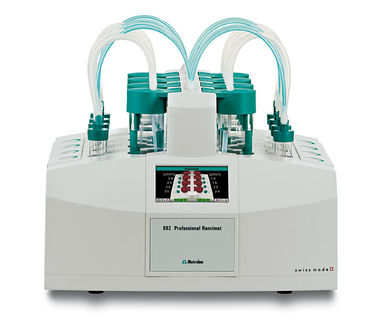To use all functions of this page, please activate cookies in your browser.
my.chemeurope.com
With an accout for my.chemeurope.com you can always see everything at a glance – and you can configure your own website and individual newsletter.
- My watch list
- My saved searches
- My saved topics
- My newsletter
Ernst David BergmannErnst David Bergmann (1903–1975) was an Israeli chemist and father of the Israeli nuclear program. Product highlightBergmann was born in Germany and son of a Jewish rabbi, Judah Bergmann. He studied at the University of Berlin under Wilhelm Schlenk, where he received his Ph.D. in 1927. Bergmann continued to work at the university, and with Schlenk, wrote Ausfuhrliches Lehrbuch der Organischen Chemie, which was published in two volumes 1932 and later in 1939; however, the fact that Bergmann was Jewish caused his name to be removed from the title page of the 1939 edition. Bergmann left for London in 1933 soon after the Nazis came to power, and began work with chemist and Zionist leader Chaim Weizmann. He left less than a year later, and arrived in Palestine on January 1, 1934, to work at the Daniel Sieff Research Institute in Palestine. During World War II he left to work on defense projects for the French, English, and Americans. Just a year after the war, Bergmann returned to the Sieff Institute in Rehovot, Israel, and continued there through its expansion in 1949 into the Weizmann Institute of Science. During the next several years Bergmann, who had become famous through his work and connection with Weizmann,[1] became close friends with David Ben-Gurion, and was appointed to several prominent government positions: chief of the Israel Defense Forces' science department in August 1948, science adviser to minister of defense on July 15, 1951, and director of research of the Division of Research and Infrastructure of the Ministry of Defense in early 1952.[2] In June 1952, he was appointed by Prime Minister David Ben-Gurion to be the first chairman of the Israel Atomic Energy Commission (IAEC), where he played a crucial role in leading the Israel nuclear program with Ben-Gurion and Defense Minister Shimon Peres. That same year, he left the Weizmann Institute to become the chair of organic chemistry at the Hebrew University of Jerusalem, and worked with graduate students for the next two years at Technion in Haifa. Around this same time, Bergmann's friendship with Weizmann ended when Bergmann married Weizmann's secretary Hani Itin. Weizmann's wife Vera had been close friends with Bergmann's previous wife before she died, and the new marriage to Itin along with rumors of other affairs caused her and her husband to effectively end their relationship with him.[3] Bergmann's work at the IAEC was shrouded in secrecy, and the agency itself was unknown to the public until he revealed its existence in 1954.[4] Bergmann offered to resign in June 1964 after Ben-Gurion had been replaced by Levi Eshkol, but was convinced to remain for two more years. He resigned as chair of the IAEC and the two defense ministry posts on April 1, 1966.[4][2] References
|
| This article is licensed under the GNU Free Documentation License. It uses material from the Wikipedia article "Ernst_David_Bergmann". A list of authors is available in Wikipedia. |







